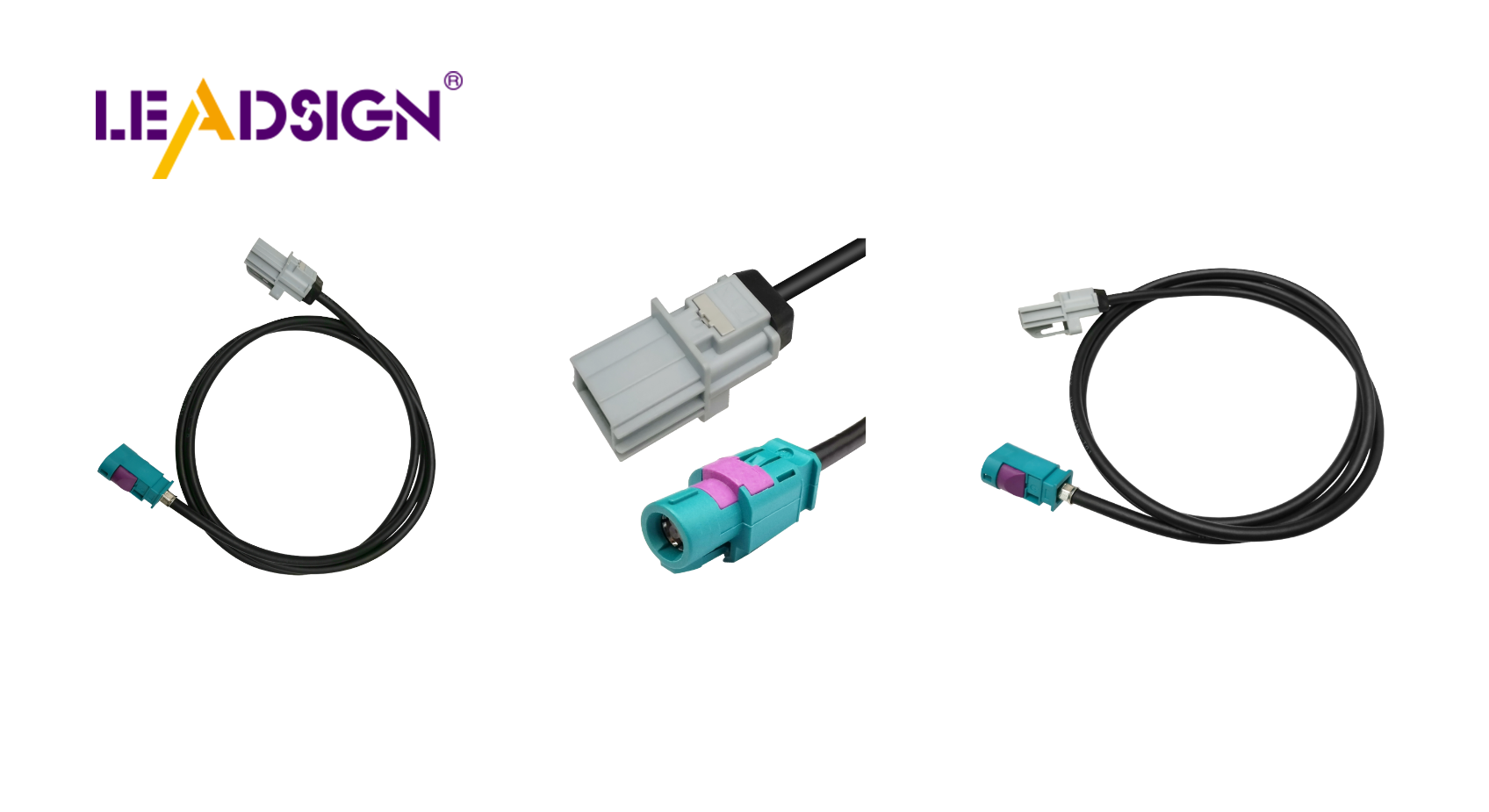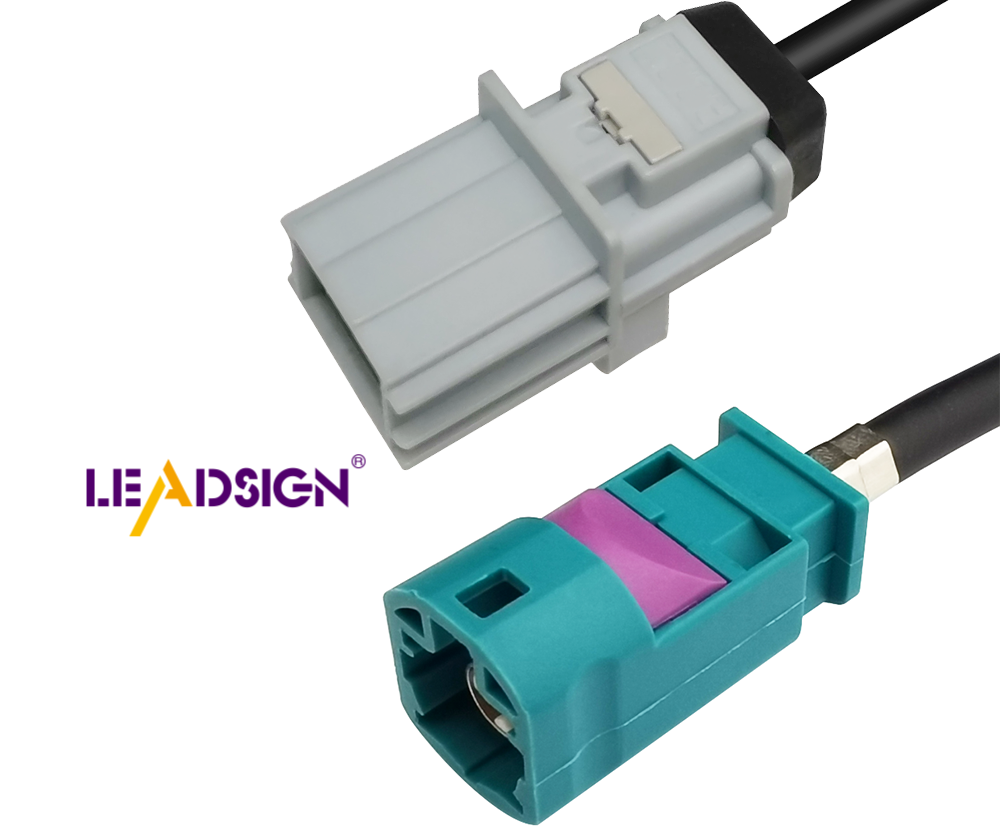What Are the Essential Vehicle Connectors for Auto Network Cars

In cars today, vehicle connectors are very important. They help car parts communicate with each other. Connectors are like the backbone of a car's electronics, enabling functionalities such as diagnostics and infotainment. As we demand faster data transfer, strong vehicle connectors are essential. They facilitate communication between car systems and outside networks, enhancing the driving experience. With the growing desire for more infotainment and connectivity features, understanding these connectors is crucial. USB connectors assist in charging devices, while Ethernet provides fast data transmission. These vehicle connectors ensure your car remains connected and operates efficiently.
Key Takeaways
Vehicle connectors are essential for communication between car systems, enhancing functionality and driving experience.
OBD-II connectors are crucial for vehicle diagnostics, with Type A and Type B offering different power and data transmission capabilities.
CAN Bus connectors simplify wiring and ensure reliable data exchange between various control units in the car.
Ethernet connectors provide fast data sharing, improving connectivity for modern infotainment systems.
USB connectors enable easy device connectivity and charging, keeping passengers connected and entertained during trips.
When selecting vehicle connectors, prioritize compatibility, durability, performance, and ease of installation to ensure optimal functionality.
Choosing high-quality connectors from reputable brands can enhance your car's reliability and longevity.
Important Types of Vehicle Connectors
Knowing about vehicle connectors helps your car work well. These parts help car systems talk and share data.
OBD-II Connectors
OBD-II connectors are key for checking and watching car health. Most cars have these 16-pin ports to get vehicle info. Each pin does something special, following rules by big groups like SAE and ISO. There are two main kinds:
Type A Connectors: Found in small cars, they give 12V power and send data at about 500,000 bauds.
Type B Connectors: Used in bigger vehicles, they give 24V power and send data up to 250,000 bauds.
OBD-II can be wired or wireless. You can pick a cable or Bluetooth/WiFi for live data sharing.
CAN Bus Connectors
CAN Bus connectors help car parts talk easily. They let different control units inside the car share info well. This system makes wiring simple and keeps data exchange reliable. Using CAN Bus means your car's engine and brakes work together smoothly.
Ethernet Connectors
Ethernet connectors are more needed now in cars. They allow fast data sharing, which is great for new entertainment systems and screens. With Ethernet, you get better connectivity and faster data speeds, making driving more fun.
USB Connectors
USB connectors are important in cars today. They connect and charge devices. You can link your phone or tablet to the car easily. This lets you play music and use apps while driving.
Use for Device Connectivity and Charging
Device Connectivity: USB connectors help your gadgets work with the car's system. You can call hands-free, listen to music, and give voice commands. This keeps you connected without losing focus on driving.
Charging Capabilities: USB connectors also charge your devices well. On long trips or short drives, they keep gadgets powered up. Passengers can charge their phones anytime.
Versatility: USB connectors fit many devices like phones and GPS units. They are useful for any car setup, keeping everything charged.
Ease of Use: Using USB is simple; just plug in your device to start charging or connecting.
Adding USB connectors makes cars better and more convenient. They keep you connected and charged, making every trip fun and smooth.
Environmental Considerations for Vehicle Connectors

When picking vehicle connectors, think about the environment. These things make sure your car works well in different situations.
Strong and Weather-Proof
Connectors must be strong and weather-proof. They need to handle tough places. Good materials keep out water, dust, and heat changes. High-density connectors are small but connect many things. This is important because it saves space and makes cars lighter. Choosing strong connectors means they last long and don't break easily.
Works with Car Systems
Connectors should fit with car systems well. They need to work smoothly with what’s already there in the car. This helps car parts talk to each other easily. USB connectors are good examples; they connect many devices simply. They let you charge phones and use them in the car easily. Picking the right connectors keeps your car's electronics working great.
Picking the Right Vehicle Connectors
Picking the right vehicle connectors is very important. They help your car's parts work well together. Think about a few things before choosing.
Things to Think About
Car Details
Compatibility: Make sure connectors fit your car's needs. Different cars need different connectors, so check your car's guide or ask an expert. automotive electrical connectors
Durability: Find connectors made from strong stuff. They should handle tough weather, heat, and shaking. Sealed ones keep out water and dust, stopping rust and harm.
Performance: Pick connectors that work well all the time. Good ones give steady power and data sharing, which is key for today's cars.
Ease of Installation: Choose connectors that are simple to put in place. This saves time and helps avoid mistakes when setting them up.
Knowing about the important vehicle connectors helps your car work well. These connectors let car parts talk to each other easily, making the car safer and better. When picking connectors, think about how strong and fitting they are. Companies like TE Connectivity and Molex have good choices that are tough and flexible. Choosing the right ones keeps your car running smoothly and connected for a great drive. Always check your car's guide and ask experts to choose wisely. reliable car wire connector
See Also
Boosting Data Transfer: Significance of Fast Automotive Connectors
Improving Automotive Data Flow: Cutting-Edge Connectors and Wires
Significance of Fakra Connectors in Today's Automotive Technology
Transforming Vehicle Connectivity: Benefits of HFM Connectors

